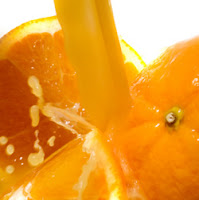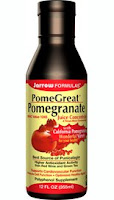More bad news for junk food, as a recent study published in the journal Neurology shows that elderly people having higher levels of certain vitamins and omega 3 fatty acids in their blood score better on mental acuity tests than those who eat the junk. Further, researchers found that eating better might even reduce the brain shrinkage associated with with Alzheimer’s disease. Booyah!
The study, conducted at Oregon State University, and one of the first of its kind, looked at 104 people at an average age of 87, and specifically measured a wide range of blood nutrient levels (instead of basing results on food questionnaires, which are less precise and less reliable).
 Well, what can I say other than…been tellin’ ya. Eat well–it’ll take you far. This study looked at people with typical American diets–some good, some…well, not so much. But it’s not too late to make the switch–in fact, perfect time for the new year.
Well, what can I say other than…been tellin’ ya. Eat well–it’ll take you far. This study looked at people with typical American diets–some good, some…well, not so much. But it’s not too late to make the switch–in fact, perfect time for the new year. 



















